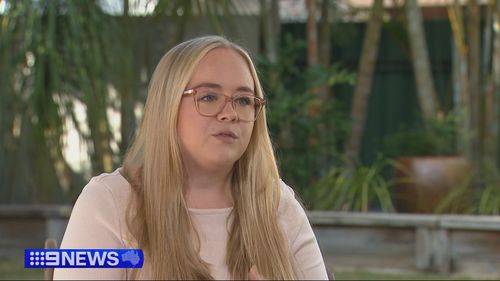Share this @internewscast.com
For years the idea of having biological children was beyond consideration for Australian woman Ashlee Greenhalgh.
The 28-year-old has Mitochondrial disease, an incurable genetic condition passed on from a mother to her baby.
Mitochondrial DNA mutations affect 120,000 Australians and can lead to decreased energy availability, especially in tissues with high energy requirements, such as the heart, muscles, and brain.

“We look at them now, full of life and possibility, and we’re overwhelmed with gratitude. Science gave us a chance.”
Australia hopes to follow suit
About 60 babies born in Australia every year will develop mitochondrial disease, including disabling and potentially fatal conditions.
And about 120,000 Australians carry disease-causing DNA variants that put them at risk of passing it on.
The passage of Maeve’s Law in March 2022 authorized the implementation of mitochondrial donation in Australia, and in 2023, the Medical Research Future Fund allocated $15 million to support a pilot program.
The mitoHOPE Program’s clinical trial will be the first of its kind in Australia to determine the safety and efficacy of mitochondrial donation.
Professor John Carroll, director of Monash’s Biomedicine Discovery Institute and leader of mitoHOPE, believes that the studies conducted in the UK should provide Australia the drive to implement similar measures.
“We hope to soon obtain our first licence from the NHMRC’s Embryo Research Licensing Committee, so that we can begin training our IVF embryologists in the procedure using donated eggs,” Carroll said.
“The birth of eight babies with a greatly reduced risk of developing mitochondrial DNA disease provides hope for those waiting to access mitochondrial donation and shines new light on the path toward introducing mitochondrial donation in Australia.
“The findings published give grounds for optimism. I look forward to continuing this work at Monash University and I hope that the new treatment can soon become available to Australian families affected by these devastating diseases.”
Federal Health Minister Mark Butler said the government was proud to support the research.













